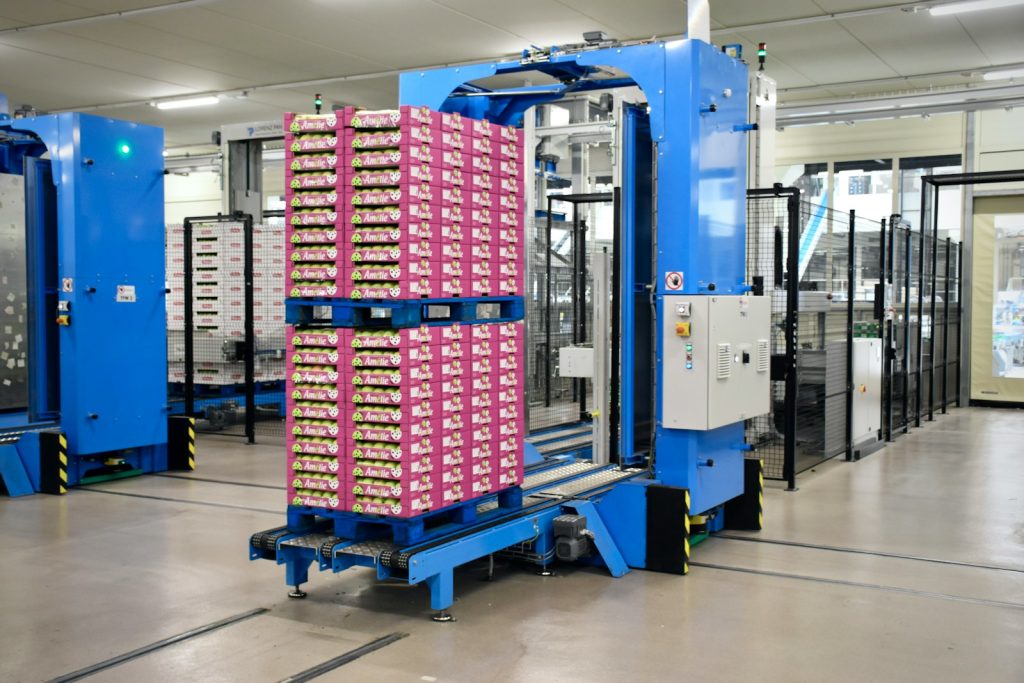The Impact of Robots on Modern Logistics
As industries continue to evolve with technological advancements, logistics is positioned at a critical juncture. The introduction of robots is not just a trend; it is a significant revolution paving the path for the future of logistics. This transition is reshaping the logistics landscape, driven by efficiency, speed, and accuracy.
Why Robots in Logistics?
The rising demands of e-commerce, coupled with the expectations for faster delivery times, have accelerated the adoption of robotics in logistics. Here are some key reasons why robots are becoming indispensable in this sector:
- Efficiency and Speed: Robots can operate 24/7 without breaks, dramatically increasing operational efficiency. Faster sorting and handling of packages reduces delivery times.
- Cost Reduction: While the initial investment in robotics technology can be substantial, the long-term cost benefits through reduced labor costs and increased productivity are significant.
- Accuracy: With high precision, robots reduce errors in sorting and packing, leading to better customer satisfaction and lower return rates.
- Safety: Robots can take on dangerous tasks that could be harmful to human workers, thereby enhancing workplace safety.
Types of Robots in Logistics
The term ‘robots’ in logistics encompasses a variety of technologies, each suited to different parts of the supply chain. Let’s delve into some of the primary types of robots revolutionizing the logistics industry:
- Automated Guided Vehicles (AGVs): These robots are used for transporting goods within warehouses. They follow predetermined paths and are ideal for repetitive tasks.
- Autonomous Mobile Robots (AMRs): Unlike AGVs, AMRs use complex algorithms to navigate through warehouses intelligently, adapting to changes in real-time environments.
- Robotic Arms: These are typically used for picking, packing, or sorting items. Their precision and speed make them ideal for intricate tasks.
- Drone Delivery Systems: Though still in the emerging stages, drones promise to revolutionize last-mile delivery, especially in hard-to-reach areas.
Case Studies and Real-World Applications
Market leaders have already started incorporating robotic solutions to optimize their logistics processes. Here are some noteworthy examples:
Amazon Robotics: Amazon has been a pioneer in utilizing robots for warehouse management. Their Kiva robots streamline the picking and packing process, significantly reducing order fulfillment time. By deploying thousands of robots across their fulfillment centers, Amazon has enhanced efficiency while simultaneously cutting operational costs.
DHL Supply Chain: DHL has integrated various robotic solutions to improve efficiency. Their use of LocusBots for order picking has resulted in a productivity increase of at least 50%. With the ability to work alongside human employees, these robots enhance the overall workflow.
FedEx Robotics: FedEx is experimenting with robot couriers for last-mile delivery. Roxo, the autonomous bot, aims to deliver packages directly to customers’ doorsteps, even navigating complex terrains that conventional delivery vehicles might find challenging.
The Role of Artificial Intelligence (AI) and Machine Learning (ML)
The successful implementation of robotics in logistics is heavily reliant on advancements in artificial intelligence and machine learning. Here’s how AI and ML are shaping this transformation:
- Predictive Analytics: AI-driven predictive analytics help in optimizing routes, inventory management, and even maintenance schedules for robots. This optimizes overall logistics operations.
- Enhanced Decision-Making: ML algorithms process vast amounts of data to make real-time decisions, which improve the adaptability of robots in dynamic environments.
- Autonomous Navigation: AI enables autonomous robots to navigate through complex environments, avoiding obstacles and optimizing paths to improve efficiency.
Challenges and Considerations
While the integration of robotics in logistics brings numerous benefits, there are also challenges and considerations to keep in mind:
- High Initial Costs: The capital investment required for implementing robotic solutions can be substantial, which may be a barrier for smaller businesses.
- Technical Training: Employees need to be trained to manage and maintain new robotic systems, which involves additional time and resources.
- System Integration: Seamlessly integrating robots with existing systems and software can be complex and requires careful planning and execution.
- Job Displacement: The introduction of robots may lead to concerns about job displacement. It is crucial to strike a balance where human workers can work alongside robots, enhancing their roles rather than replacing them.
The Future of Robotics in Logistics
The future landscape of logistics will likely be a harmonious blend of human intelligence and robotic efficiency. As technology continues to advance, the following trends are expected to shape the industry:
- Increased Collaboration: Collaborative robots, or ‘cobots,’ will work alongside human employees, taking over repetitive tasks and allowing humans to focus on more complex roles.
- Advanced Robotics: With advancements in robotics, we will see more sophisticated machines capable of performing a broader range of tasks with higher precision and speed.
- Integrated Systems: Fully integrated systems where robots, AI, and machine learning work in conjunction to provide unprecedented levels of efficiency and accuracy in logistics operations.
- Proliferation of Drone Deliveries: As regulations evolve, drones may become a common sight in last-mile delivery, especially for e-commerce and essential services.
In summary, the future of logistics is undoubtedly intertwined with the rise of robotics. The transformative potential of these technologies promises a more efficient, accurate, and flexible supply chain. As businesses continue to explore and adopt these innovations, the logistics industry stands on the brink of a new era, driven by robotic revolution.

